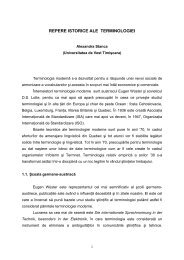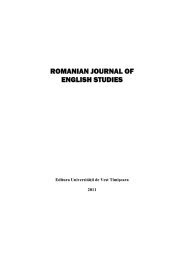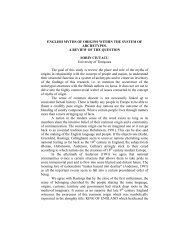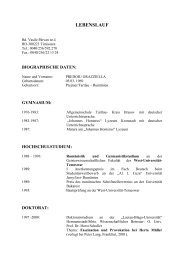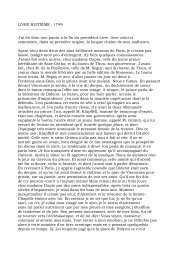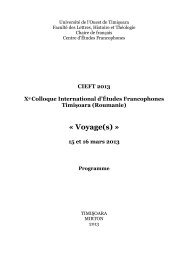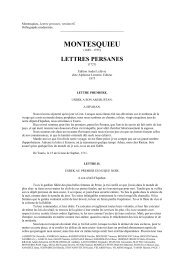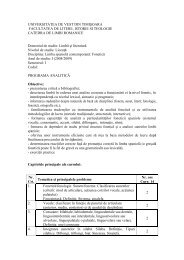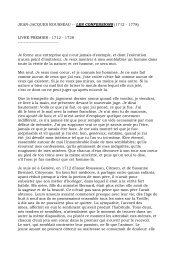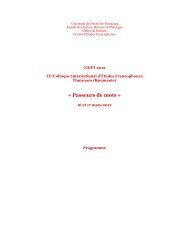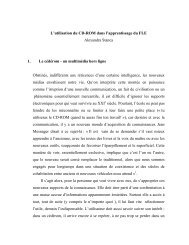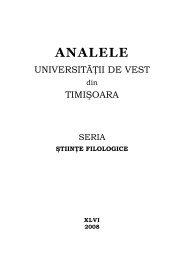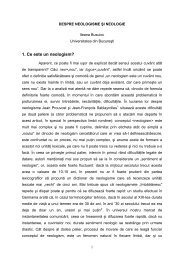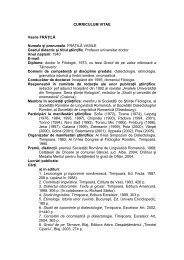TRANSLATION AND MEANING: A CULTURAL- COGNITIVE ...
TRANSLATION AND MEANING: A CULTURAL- COGNITIVE ...
TRANSLATION AND MEANING: A CULTURAL- COGNITIVE ...
You also want an ePaper? Increase the reach of your titles
YUMPU automatically turns print PDFs into web optimized ePapers that Google loves.
or MOD can prove the most reasonable option. In general, the application of<br />
TRF and TRL seems to be motivated by an intention to preserve the<br />
contextual effects of the original, while SUB and MOD are motivated<br />
mainly by a need to optimise the amount of processing effort required from<br />
the target reader. We have also seen that the dynamic changes of<br />
communication situations even within one and the same title can result in<br />
the application of combined operations.<br />
A secondary communication situation may arise for various reasons.<br />
One can be that a source language expression activates an encyclopaedic<br />
assumption in the source reader that the corresponding target language<br />
expression cannot activate in a relevance-sensitive manner (see the case of<br />
Legally Blonde). Another is when there is a difference in the background<br />
assumptions that the source and the target readers bring into the process of<br />
assessing the relevance of a title. One example is the case of comedies,<br />
where Hungarian titles, as has been observed, tend to rely on humorous<br />
implicatures much more than in English. Whether we call such background<br />
assumptions, norms or something else is of little importance. What is<br />
important is that the translator should realise clearly what assumptions the<br />
target reader’s cognitive environment contains and how these are different<br />
from those in the source reader’s cognitive environment. Such comparative<br />
studies as this one may serve to better bring out these differences.<br />
References<br />
Catford, J. C. 1965. A Linguistic Theory of Translation. Oxford: Oxford University Press.<br />
Gutt, E.-A. 1991. Translation and Relevance. Oxford: Basil Blackwell.<br />
Sperber, D. and D. Wilson. 1986. Relevance. Oxford: Basil Blackwell.<br />
Vermes, A. P. 2003. ‘Proper Names in Translation: An Explanatory Attempt’ in Across<br />
Languages and Cultures 4.1.<br />
Wilson, D. 1992. ‘Reference and Relevance’ in UCL Working Papers in Linguistics Vol. 4.<br />
London: Department of Phonetics and Linguistics, University College London.



